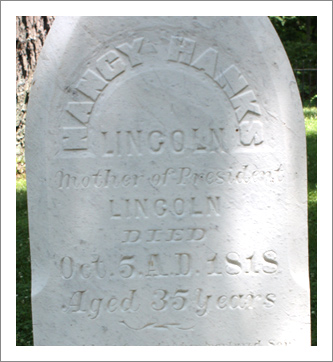NEWS FLASH:
JOHN OUTRUNS PETER IN SPRINT TO THE EMPTY TOMB!
Did you ever notice in John’s Gospel that he made two references to the fact that he outran Peter in getting to the tomb on the morning of the resurrection?
John 20:1-8
1 Now the first day of the week Mary Magdalene went to the tomb early, while it was still dark, and saw that the stone had been taken away from the tomb. 2 Then she ran and came to Simon Peter, and to the other disciple, whom Jesus loved, and said to them, “They have taken away the Lord out of the tomb, and we do not know where they have laid Him.” 3 Peter therefore went out, and the other disciple, and were going to the tomb. 4 So they both ran together, and the other disciple outran Peter and came to the tomb first. 5 And he, stooping down and looking in, saw the linen cloths lying there; yet he did not go in .6 Then Simon Peter came, following him, and went into the tomb; and he saw the linen cloths lying there, 7 and the handkerchief that had been around His head, not lying with the linen cloths, but folded together in a place by itself. 8 Then the other disciple, who came to the tomb first, went in also; and he saw and believed.
Isn’t that amazing! John is writing about the most important event in human historythe resurrection of Jesusand he makes two references to outrunning Peter! John was quite old when he wrote this (it was probably 50 or 60 years after the resurrection), and I’m sure there was a smile on his face when he included this detail. He probably had teased Peter about it over the years… the way competitive guys will sometimes do in a good-natured way.
Not only did he reference himself being faster than Peter, but he also alluded to having better manners and being more cultured than Peter. John mentioned how he respectfully stopped at the entrance of the tomb, but Peter, being more impulsive, just barged right innot observing proper graveside etiquette.
We call John the Apostle of Love, and rightly so.
“It is also said [of John] that during his latter years he was not able to make a long discourse. He was carried to the assembly, and was accustomed to say nothing but this: ‘Little children, love one another.’ At length his disciples asked him why he always dwelt upon the same thing. He replied, ‘Because it is the Lord’s command; and if this is done, it is sufficient.’” (from Barnes’ Notes)
However, John wasn’t always known for being loving and gentle, and his competitiveness wasn’t always good-natured. Consider the following items that John did not include in his Gospel:
John did not include the fact that Jesus gave John and his brother James the nickname, Boanerges, which means “The sons of Thunder.” This term also has the connotation of noise and commotion (Mark 3:17). John much preferred the nickname he apparently gave himself: The disciple whom Jesus loved.
John did not include the fact that right after Jesus had taught the disciples about becoming as little children, John told Jesus, “Teacher, we saw someone who does not follow us casting out demons in Your name, and we forbade him because he does not follow us.” Jesus had to correct John about not having an attitude of exclusivity or superiority concerning ministry (Mark 9:38-42).
John did not include the fact that the disciples had significant strife and numerous arguments about which of them was the greatest. One of these was sparked when John and James went to Jesus privately and requested the seats of highest honor in His Kingdom (Mark 10:35-45).
John did not include the fact that when a Samaritan village was unwilling to receive Jesus’ ministry, John became angry and asked if Jesus wanted him to command fire to come down from heaven to destroy them? Jesus rebuked him and said, “You do not know what manner of spirit you are of. For the Son of Man did not come to destroy men’s lives but to save them” (Luke 9:51-56).
Incidentally, three of the four above-mentioned incidents that were less-than-flattering to John are recorded in Mark’s Gospel. Mark is considered to have gotten the information for his Gospel from guess who? You’re right Peter. Scholars widely believe that Mark’s Gospel was heavily influenced by Peter’s teachings.
I’m not saying that Peter and John were in perpetual strife or that they harbored ill-will toward each other. Thank God they were both born-again after Jesus’ resurrection, received the life and the love of God on the inside of them, and grew up spiritually. They learned to walk in love and work together as a team.
In Acts 3:1-11 Peter and John were going up together to the temple to pray… they were together when the lame man was miraculously healed.
In Acts 4 Peter and John were put in prison together, and gave defense before the Sanhedrin (4:13) Now when they saw the boldness of Peter and John, and perceived that they were uneducated and untrained men, they marveled.
In Acts 8:14 “…when the apostles who were at Jerusalem heard that Samaria had received the word of God, they sent Peter and John to them…”
So when did it finally get through to these guys that they had to quit trying to out-do each other, comparing themselves with each other, and competing against one another? A real turning-point seems to have occurred in John 21.
Peter, who had denied Jesus three times, was asked three times by the Lord, “Simon, do you love me?” Peter reaffirmed his love for Jesus, and Jesus reiterated the call that was upon His life… “Feed my sheep.”
What happened immediately after this really highlights the problem of comparison and competitiveness that existed among the disciples, and also shows us how much Jesus dislikes it when His servants focus on others instead of obeying what he has called them to do. Jesus went on to say to Peter…
John 21:18-22
18 Most assuredly, I say to you, when you were younger, you girded yourself and walked where you wished; but when you are old, you will stretch out your hands, and another will gird you and carry you where you do not wish.”19 This He spoke, signifying by what death he would glorify God. And when He had spoken this, He said to him, “Follow Me.” 20 Then Peter, turning around, saw the disciple whom Jesus loved following, who also had leaned on His breast at the supper, and said, “Lord, who is the one who betrays You?”21 Peter, seeing him, said to Jesus, “But Lord, what about this man?” 22 Jesus said to him, “If I will that he remain till I come, what is that to you? You follow Me.”
Putting it very bluntly, Jesus told Peter that it was none of his business what He had called John to do. Jesus knew that if Peter was going to fulfill God’s plan for his life, he had to get his eyes off of others. It was no longer about who was going to be the greatest, or who would receive the most recognition.
When Jesus told Peter, “Feed my sheep,” it was all about COMPASSION. When Peter said, “Lord, what about this man” It was all about COMPARISON.
Jesus had originally spoken to Peter to help him overcome discouragement, and to clarify and reinforce his call. But he ended up rebuking him about the sin of comparison.
Peter had to learn to take his eyes off of John and off of any other human beings.
Comparison and competition were not going to be allowed any longer.
Comparison is always based on insecurity, and it will only produce pride or inferiority.
Discussing his own growth in his attitudes and perspectives of leadership, John Maxwell said the following:
“I was very position-conscious. I was making sure that I had my title and my position and “my rights.” Let me tell you something: leaders come from all walks of life, and they often lead people without the benefit of a position or a title. They do it by building influence with others. People who are focused on their position are too wrapped up rights and responsibilities to influence anyone.
I was very competitive.
I became very competitive during that whole process, and the reason for that is very simple: I was always trying to beat someone else. People are not apt to follow you if your goal is to defeat them and make a loser out of them. Leaders encourage people and make them feel like winners.” (From an article entitled, “Travel Agent or Tour Guide”)
We must discover…
* Our gifts
* Our calling
* Our assignment
…and operate in them.
Our job is not to ask, “Lord, what about this man?”
Our job is to obey God and to serve him according to how he called, gifted, anointed, and equipped us.
2 Corinthians 10:12-13 (Amplified)
12 Not that we [have the audacity to] venture to class or [even to] compare ourselves with some who exalt and furnish testimonials for themselves! However, when they measure themselves with themselves and compare themselves with one another, they are without understanding and behave unwisely.
13 We, on the other hand, will not boast beyond our legitimate province and proper limit, but will keep within the limits [of our commission which] God has allotted us as our measuring line and which reaches and includes even you.
You can’t be someone else you’ve got to be the best you that you can be who God intended for you to be.
You can’t do what someone else can do you’ve got your own calling and your own gifts.
* Moses had a rod.
* Rahab had a scarlet thread.
* Samson had the jawbone of a donkey.
* David had a sling.
* The widow woman had a pot of oil.
* The little boy had a few loaves and a few fishes.
* Dorcas had a needle and thread.
All of these used what they hadeven though it may have seemed small in their own eyesto the glory of God!
Keep in mind that…
* Noah never re-built the walls of Jerusalem.
* Abraham never split the Red Sea.
* Joseph never built an Ark.
* Moses never defeated the Philistines.
* Joshua never pioneered a church.
* David never heard God speak from a burning bush.
* Daniel never multiplied the loaves and the fish.
* Nehemiah never spent the night in the lion’s den.
* Paul never saw the walls of Jericho fall down.
When I consider what is learned from John and Peter, I’m thankful that God allowed the “flavor” of human personality to come through in His inspired Word.
As we see John’s growth in love, we can realize that there’s hope for all of us. If there are parts of us that are prideful and self-seeking, we can grow in love just like John did.
As we observe Peter’s growth in grace, we recognize that even when our human-ness and insecurities seem to get in the way, God is continually grooming us and developing us so that His glory and His Spirit can shine through.
Through this growth, we’ll be able, like John, to look back at our former competitiveness, and smile at ourselves. And like Peter, we’ll quit asking, “What about this man?” and simply stay focused on following the Lord. Instead of feeling threatened by each other, we’ll cheer one another on, realizing that we’re all on the same team. We’ll no longer be trying to out-do each other, but will truly endeavor to help one another.
Let me share these quotes in closing:
“There is a great destructive force that comes upon is when we start comparing ourselves in the flesh with what we could be spiritually. We should never compare what we are with what we could be, because we will always be down on ourselves when we do this. Just look to Jesus and what He is. As long as we look to Jesus we will go toward Him. When we look at our inferiority we will go toward it.”
– Smith Wigglesworth
“Rabbits don’t fly. Eagles don’t swim. Ducks look funny trying to climb. Squirrels don’t have feathers. Stop comparing. There’s plenty of room in the forest.”
– Charles Swindoll
The president of the Special Olympics was giving a talk to a large audience. During the question and answer time that followed, someone asked him to describe the best moment for him as president of that year’s Special Olympics. Without any hesitation he told about the 100-meter run. Six developmentally handicapped kids lined up in a stadium filled with 50,000 people. These kids had prepared all year for this event. They wanted to win. Although they could not run well, they would give it their very best effort. The gun went off and all six began to run. At about the 50-meter mark, one of the six runners fell down, face first on the track. The other five runners took a couple more steps and then stopped. They looked back and saw the fallen runner. Then, to the surprise of the crowd, they all went back, helped the fallen runner to his feet, joined hands, and continued the race–all of them crossing the finish line at the same moment. Each one received a gold medal. Our role as members of Jesus’ church is helping those who fall to get back up. The church is not the place for competition; we must serve together in unity. What Jesus wanted most of all for the church was that we would be one (John 17:23).
1 Corinthians 3:5-9 (New Living Translation)
5 Who is Apollos, and who is Paul, that we should be the cause of such quarrels? Why, we’re only servants. Through us God caused you to believe. Each of us did the work the Lord gave us. 6 My job was to plant the seed in your hearts, and Apollos watered it, but it was God, not we, who made it grow. 7 The ones who do the planting or watering aren’t important, but God is important because he is the one who makes the seed grow. 8 The one who plants and the one who waters work as a team with the same purpose. Yet they will be rewarded individually, according to their own hard work. 9 We work together as partners who belong to God. You are God’s field, God’s building–not ours.

 Recently, I was listening to a worship service that Lisa had downloaded. The music was beautiful, and you could sense the anointing of the Holy Spirit. I heard the worship leader exhorting the people and saying such things as, “The Holy Spirit is here and He is moving in this place. Open your heart and let Him sweep over your life. Let Him saturate you with His peace. Get ready to encounter His Presence and feel His love as He moves in this place.”
Recently, I was listening to a worship service that Lisa had downloaded. The music was beautiful, and you could sense the anointing of the Holy Spirit. I heard the worship leader exhorting the people and saying such things as, “The Holy Spirit is here and He is moving in this place. Open your heart and let Him sweep over your life. Let Him saturate you with His peace. Get ready to encounter His Presence and feel His love as He moves in this place.” Ministry is people-business, and our effectiveness is largely dependent on how well we interact with and relate to people. The number one person we must deal with is our own self.
Ministry is people-business, and our effectiveness is largely dependent on how well we interact with and relate to people. The number one person we must deal with is our own self.
 I became concerned a few years ago when I read some very startling statistics about how Christians were handling their money… especially in the areas of tithing and giving. According to the studies I came across:
I became concerned a few years ago when I read some very startling statistics about how Christians were handling their money… especially in the areas of tithing and giving. According to the studies I came across: In Whose Hands Are You?
In Whose Hands Are You? Several metaphors are used to illustrate the various functions of the Word of God in our lives. For example, the Word of God is likened unto:
Several metaphors are used to illustrate the various functions of the Word of God in our lives. For example, the Word of God is likened unto: As much as we’d all like to be omniscient and get it 100% right the first time, every time, most of us on occasion learn through some trial-and-error, through the process of elimination. Even some of the great leaders of the Bible learned this way:
As much as we’d all like to be omniscient and get it 100% right the first time, every time, most of us on occasion learn through some trial-and-error, through the process of elimination. Even some of the great leaders of the Bible learned this way: Some time ago, I was in Barstow, California, preaching for Pastor Bernie Samples. Both of us are originally from Indiana, and our conversation took us to discussing Abraham Lincoln, who lived fourteen years in southern Indiana (1816-1830). Bernie talked to me about a visit he had made to Lincoln State Park, where Lincoln’s mother died and is buried. I did not know this, but he mentioned that Lincoln’s mother had died of milk sickness.
Some time ago, I was in Barstow, California, preaching for Pastor Bernie Samples. Both of us are originally from Indiana, and our conversation took us to discussing Abraham Lincoln, who lived fourteen years in southern Indiana (1816-1830). Bernie talked to me about a visit he had made to Lincoln State Park, where Lincoln’s mother died and is buried. I did not know this, but he mentioned that Lincoln’s mother had died of milk sickness.